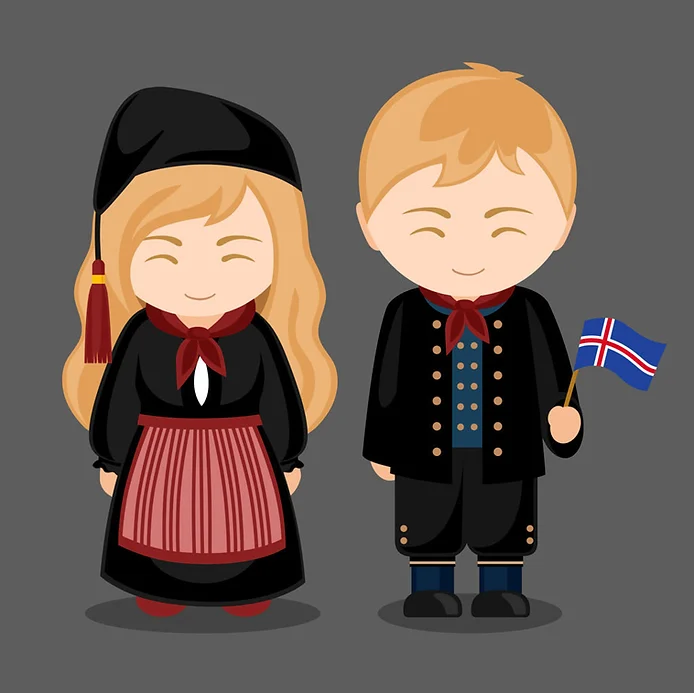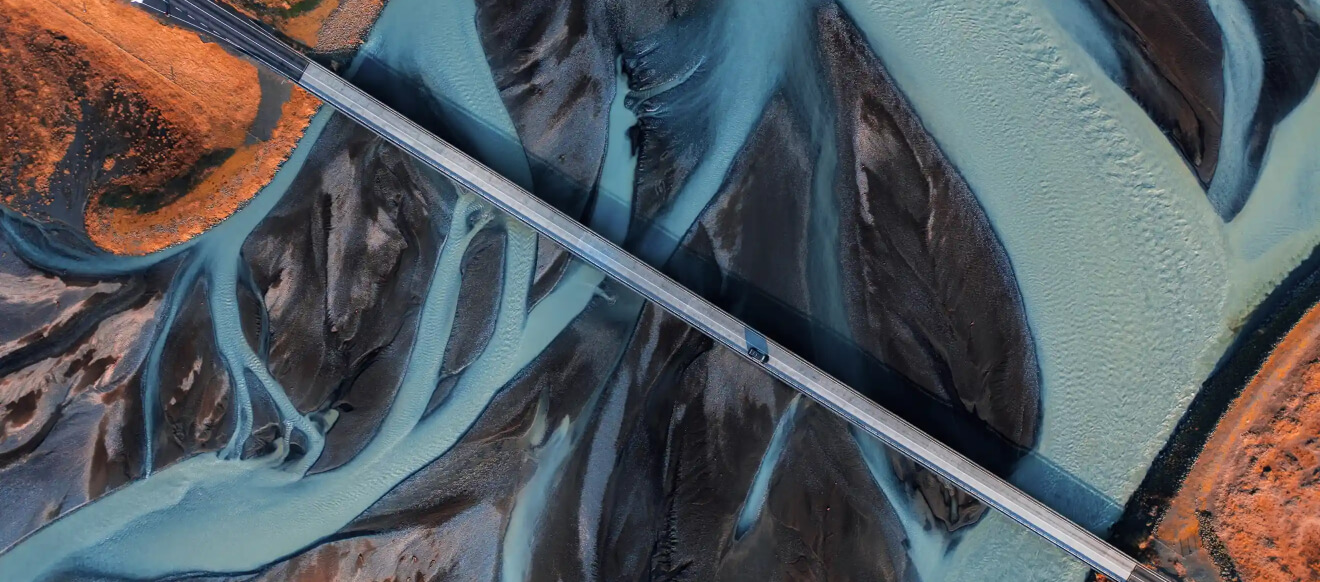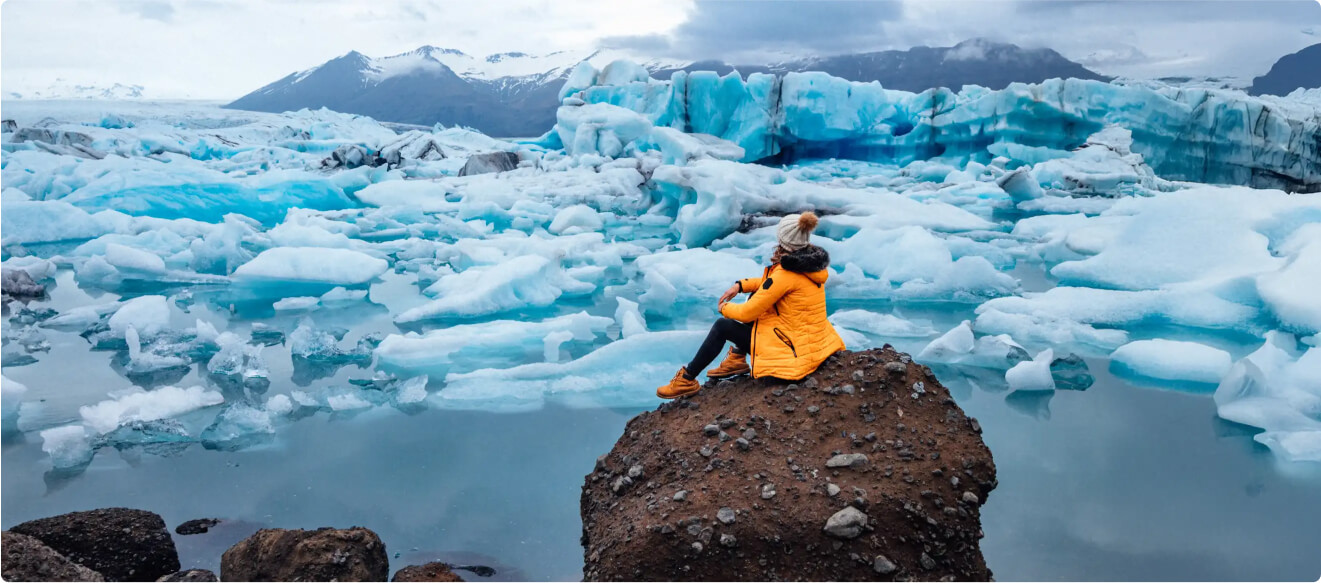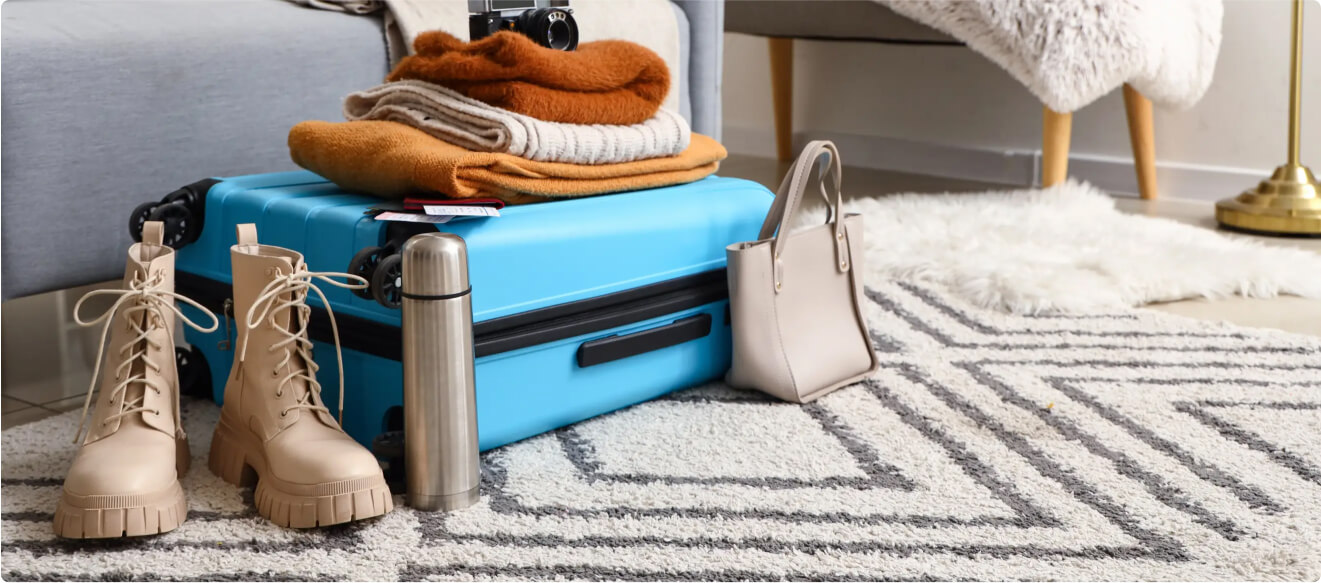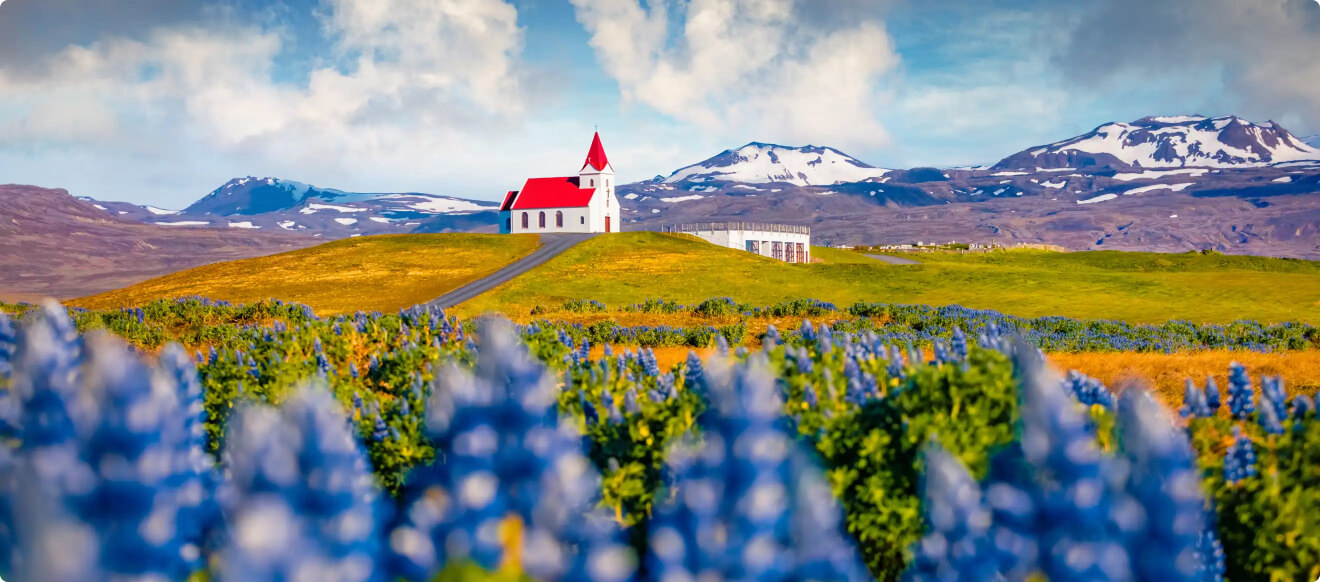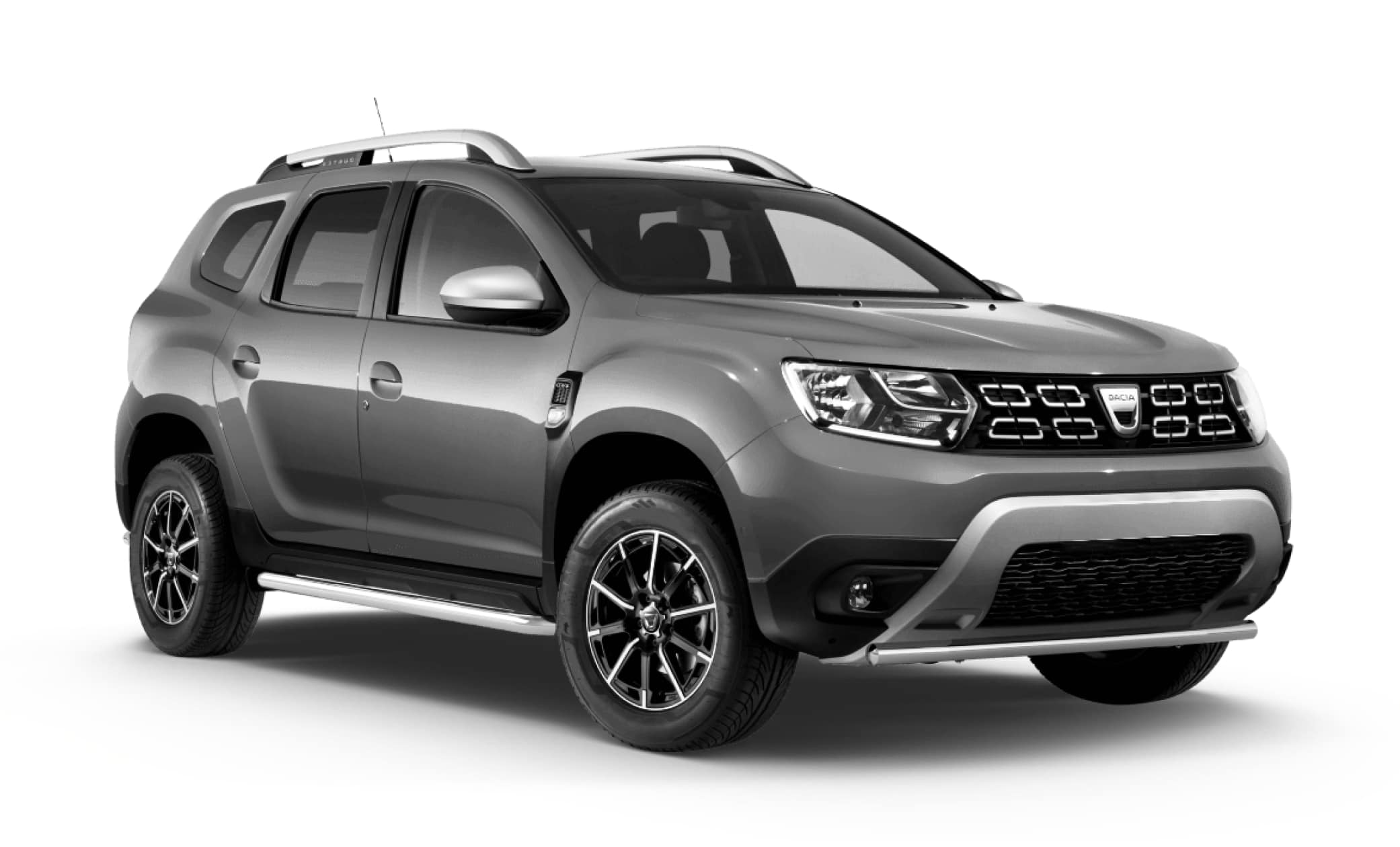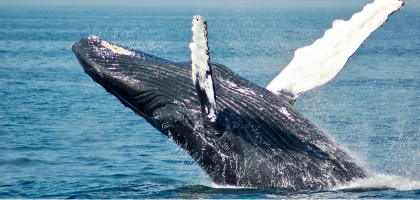Since Iceland is fairly far from anywhere else, its culture has diverged from its Scandinavian roots. Additionally, its residents, with a relatively small gene pool until recent decades, have developed unique characteristics.
There is a strong element of national pride in the land of ice and fire. Icelanders are keen to keep their heritage alive and maintain their traditional practices. Here’s a little guide to Icelandic people.
What do Icelandic People Look Like?
The stereotypes of Icelandic people’s physical traits have become somewhat famous around the world. Some have an element in truth, but others are too specific to apply to all the natives.
A quick glance around Reykjavík would make you think that most Icelanders are fairly tall. There is a high proportion of blonde people with blue eyes, and few locals have curly hair. However, this generic appearance certainly doesn’t apply to all Icelanders.
Some have ginger hair (these may be descended from the Irish slaves brought here by the first settlers). Others have German ancestry and the height among the natives varies.
Then, of course, there are the first and second generations of Icelanders who were born to migrant parents. Many of these have roots in the Philippines, south-east Asia, and South and Central America among other places.
And so, fifty years ago most Icelanders may have looked very similar, especially because almost everyone was distantly related. Today, however, the stereotypes are breaking down with the increasing size of the gene pool.
How Many People Speak Icelandic?
Iceland’s population stands at just over 350,000. They are the only speakers of the language, apart from a few other Icelanders scattered around the world. Some relocate to the other Nordic countries or to North America, but most remain here.
Immigration from the other EEA countries is fairly high, but a determined effort is made to keep the language unchanged. The Árni Magnússon Institute for Icelandic Studies is responsible for the preservation of the language and regulates its teaching.
The Icelandic Naming Committee ensures that parents of new-borns select names that are in accordance with Icelandic grammar rules. And so, no words of foreign origin are permitted to enter into the Icelandic lexicon.
This is to ensure the language’s purity is maintained. With so few speakers, a language such as Icelandic is under constant danger of foreign influence; this is guarded against.
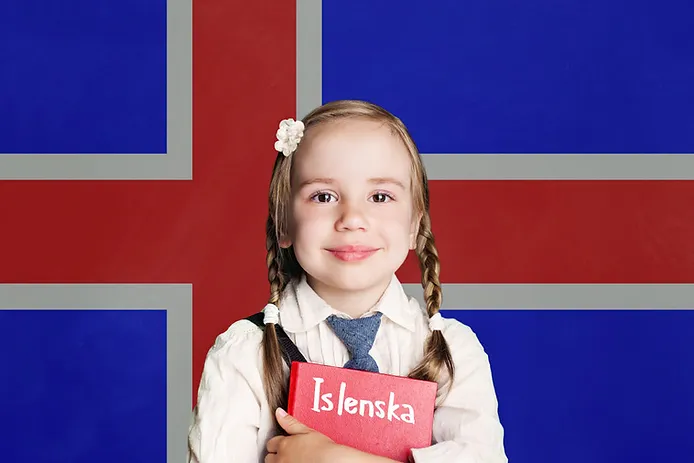
The Icelandic language is considered to be most similar to Norwegian and Faroese (spoken in the Faroe Islands). They all have the same roots, being part of the group of North Germanic languages.
Since Icelandic has been influenced very little by other languages, modern Icelanders can still read Old Norse. This was the language spoken in Scandinavia until the 15th Century when it split into several distinct languages.
On the subject of names, most Icelanders don’t have a family name as their surname. They instead have what is known as a patronymic name: their father’s first name added to -son or -dóttir. For example, if your father’s first name is Gunnar your last name will either be Gunnarsson or Gunnarsdóttir.
The Icelanders’ Temperament and Personality
Speaking generally (and from my own experience) many Icelanders procrastinate a lot. They have a saying: “þetta reddast”, which loosely means “it will all work out okay”. Some Icelanders use this mindset to justify putting off tasks and projects until the last day (or minute).
On the flip side, other Icelanders can be described as having an incredibly strong work ethic. They take pride in how many hours they put in during a day or week and how much was achieved. Who knows which kind you’ll run into here? The Icelanders are as diverse as any other nation’s people.
Iceland can certainly be categorized as having a strong national pride. Whether through the preservation of their culture or the support of sports teams, Icelanders seek to raise their nation. For a country with so few people, the land of ice and fire is rich in artistic prowess.
There is a high proportion of successful authors, musicians and artists per capita in Iceland, many of whom you’ll know. Icelandic bands and musicians such as Kaleo, Björk, Sigur Rós and Ólafur Arnalds are some of the Icelandic artists who have gained international fame.
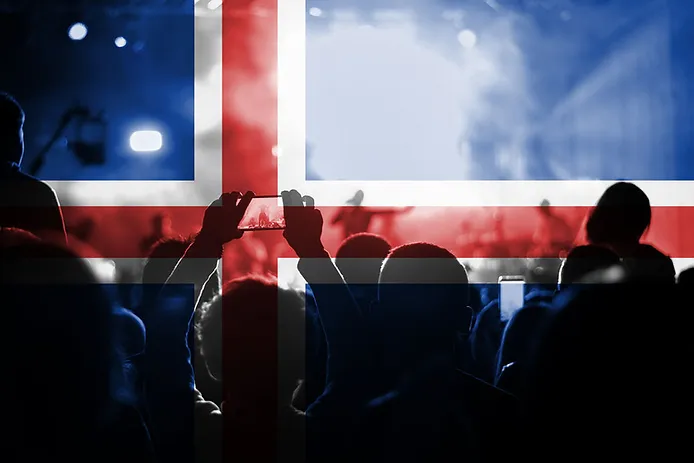
Another interesting fact about the Icelanders is that, no matter the season or weather, they love ice cream. I’ve yet to meet an Icelander that doesn’t like ice cream, even if it’s below zero and snowing. As a result, there are over a dozen ice cream shops in the capital and many more throughout the country.
The locals are also very fond of their thermal pools. There are seven public swimming pools in Reykjavík, all of them naturally heated, and all are generally full every day. When the Icelanders aren’t visiting the man-made pools, they’re visiting one of the abundant wild hot springs. Thermal pools and spas in Iceland are so common because the country is cold and dark for half the year, the love of hot water makes sense.
Religion in Iceland
The vast majority of Icelanders belong to the Lutheran State Church. One of the capital’s most famous buildings, Hallgrímskirkja, is a church dedicated to this faith.
In recent decades, however, there has been a resurgence of the Old Norse religion, known in Iceland as Ásatrú. Ásatrúarfélagið (The Ásatrú Fellowship) now accounts for over 1% of Icelanders and is the sixth-largest religion in the country. It involves, but does not require, the study of old Icelandic texts such as the Prose Edda.
Other Facts about the Icelanders
Iceland has one of the lowest crime rates in the world. According to worldpopulationreview.com, in 2020 Iceland’s crime index was 23.7, compared to 44.54 in the UK and 47.7 in America. Iceland’s police don’t carry guns (but they do have them locked in the back of their car).
Only one person has ever been shot by police in the country. According to the Global Peace Index, Iceland has been the safest country for twelve years in a row. This is likely due to the combination of a strong community feeling, a high standard of living, and a small population. Iceland is also ranked as the most gender-equal country in the world.
Football is a huge deal in Iceland. Considering its small size, Iceland’s national men’s and women’s teams have performed remarkably well in recent competitions. The women’s team qualified for the Women's Euro 2022 with six wins, one draw, and one loss in their group. The men’s team reached the quarter-finals in Euro 2016, and qualified for the 2018 World Cup.
These successes in a country with less than half a million people demonstrate the dedication to excellence Icelanders possess, so it's not a surprise that some of these players have become some of the most famous Icelandic celebrities around the world.
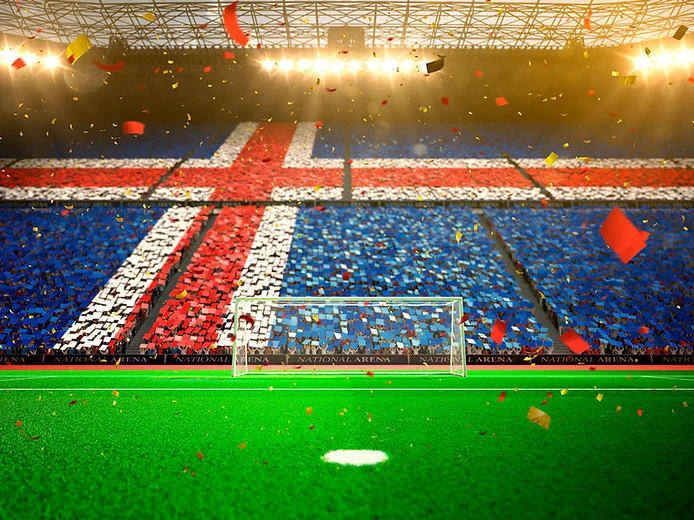
The Icelanders care deeply about their surrounding environment and work hard to keep it pristine. Iceland is actually one of the most environmentally friendly countries in the world; most of its electricity is geothermally sourced.
You will find that most, if not all, Icelanders enjoy hiking and road trips to enjoy their nature. No wonder why, as doing an Iceland road trip is the ultimate driving experience with its stunning landscapes and scenic routes. Visitors and locals alike will never run out of things to do in Iceland.
At the same time, they treat it with respect, avoiding as much as possible causing damage to the landscape. They are particularly protective of Icelandic moss, which takes decades to grow and dies easily if stepped on. So, when you visit Iceland, please keep away from the bright-green moss that covers much of the ground.
When you arrive in Iceland, you’ll find the locals very welcoming and happy to teach you about their culture. In return, they ask that you respect the land, and do not take any lava rock back home with you.
And as I mentioned above, please avoid stepping on the delicate Icelandic moss growing on most hillsides and lava fields. Experience the land that has birthed incredible writers, sculptors, musicians, and film-makers. Visit the locations that have been used for scenes in many blockbuster movies, such as Tomb Raider and Captain America.




